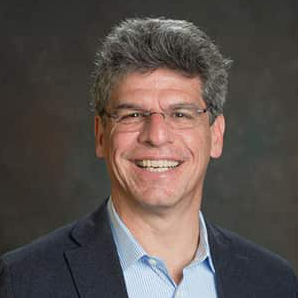Saul Bellow’s Ravelstein
Reflect on a novel rich with themes of politics, philosophy, religion, love, friendship, and death.
Winter 2021
Online Seminar Series
In the introduction to his classic 1952 novel, Invisible Man, Ralph Ellison wrote that his task was “one of revealing the human universals within the plight of one who was both black and American.” The novel is rightly celebrated as an enduring document of the black experience – one still timely today, as black Americans reiterate Ellison’s demand to be “seen” and judged as individuals. But it is also a larger meditation on identity, citizenship, and the enduring American idea and ideal of E Pluribus Unum (“out of many, one”).
This seminar will meet online weekly on Thursdays. All course materials will be provided. Fellows will receive a $200 stipend contingent upon participation in the course and completion of a brief response paper and evaluation.
Image: Invisible Man 5, The Hunting Theatre Company 2012, (black and white)
Thomas Merrill on teaching Invisible Man

Thomas Merrill is an associate professor in the School of Public Affairs at American University. He is the author of Hume and the Politics of Enlightenment. He is also the co-editor of three edited volumes, including The Political Thought of the Civil War.

Thomas Merrill is an associate professor in the School of Public Affairs at American University. He is the author of Hume and the Politics of Enlightenment, which won the Delba Winthrop Prize for Best Recent Work in Political Philosophy. He is also the co-editor of three edited volumes, including The Political Thought of the Civil War and has held fellowships from Harvard, Princeton, and the American Enterprise Institute. He was a senior research analyst for the President’s Council on Bioethics during the George W. Bush administration and is the associate director of the Department of Government and, more recently, as department chair.
Readings:
Recommended Listening:
Discussion Questions:
Readings:
Discussion Questions:
Readings:
Recommended Viewing:
Discussion Questions:
Readings:
Discussion Questions:
Readings:
Discussion Questions:

Matthew Continetti
Matthew Continetti is the director of domestic policy studies and the inaugural Patrick and Charlene Neal Chair in American Prosperity at the American Enterprise Institute (AEI), where his work is focused on American political thought and history, with a particular focus on the development of the Republican Party and the American conservative movement in the 20th century.

Jacob Howland
Jacob Howland is McFarlin Professor of Philosophy Emeritus at the University of Tulsa. He has written about Plato, Aristotle, Xenophon, Kierkegaard, the Talmud, the Holocaust, ideological tyranny, and other subjects. His most recent book is Glaucon’s Fate: History, Myth, and Character in Plato’s Republic.

Flagg Taylor
Flagg Taylor is the Executive Director of the Center for Civics, Culture, & Society, at Miami University. His research specialty is in the history of political thought and American government, especially the question of executive power. He is Chair of the Academic Council of the Victims of Communism Memorial Foundation.

Ryan P. Hanley
Ryan Patrick Hanley is Professor of Political Science at Boston College. His research in the history of political philosophy focuses on the Enlightenment. He is the author of Our Great Purpose: Adam Smith on Living a Better Life and Love’s Enlightenment: Rethinking Charity in Modernity.

Martha Bayles
Martha Bayles is a fellow at the Institute for Advanced Studies in Culture at the University of Virginia, and since 2003 she has taught humanities at Boston College. She is currently at work on a monograph on the threats to independent journalism around the world; and a book about the importance of “voluntary restraint” in the American tradition of free speech.

Diana Schaub
Diana Schaub is a nonresident senior fellow at the American Enterprise Institute (AEI), where her work is focused on American political thought and history, particularly Abraham Lincoln, Frederick Douglass, African American political thought, Montesquieu, and the relevance of core American ideals to contemporary challenges and debates. Concurrently, she is Professor Emerita of Political Science at Loyola University Maryland, where she taught for almost three decades.